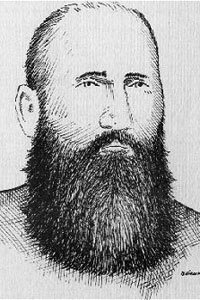Walter Lynch, a bachelor and soldier, came West in 1869-70 with the Wolseley Red River Expedition. He was impressed with the farming opportunities on the Prairies. When he returned to Ontario, he persuaded a group of people to come out to this relatively unknown area. They were attracted by the offer of good soil, pleasant climate and 160 acres of free land.
Lynch promoted the idea of establishing a new life in the West. He proposed to avoid the “Prairie” because of its problems with fire, lack of wood and water and its openness to the elements hail, frost, wind and snow. He wanted to develop river lots, especially those near the old fur trading community of Portage la Prairie.
By 1871, he had recruited 55 Canadian Scots. They would travel via rail, steamship and wagon train to reach the land of their dreams. The route stretched from Ontario into Michigan, Wisconsin and Minnesota and then north through the Dakotas into the postage stamp province of Manitoba. From Portage la Prairie, the Lynch Group traveled in a northwesterly direction along the old Shannon Trail to Rat Creek and the site of their home on the Portage Plains, Westbourne. The Lynch Party advocated a scientific approach to agriculture. Thus, it is easy to understand why in 1873, he helped to bring from the East the first registered Shorthorn cattle. His bull, Scottish Canadian, won first honors against every other class at the Winnipeg Fair of 1905 and his herd served as foundation stock for cattlemen all over Western Canada.
In 1904, he was appointed to the first board of the newly created Manitoba Agricultural College and served as its chairman until his death in 1908.
Lynch played an important role in Manitoba’s history as a promoter of settlers, a producer of registered cattle and an educator of farmers. On the other hand, he did not aspire to high honors for he was the type of man who stressed honesty and integrity, not fame nor fortune.


